- Home
- Frank Herbert
DV 3 - The Lazarus Effect Page 15
DV 3 - The Lazarus Effect Read online
Page 15
One of the dashers displayed a great hood that floated out from its ugly, leather-skinned head like a black mantle. Experts said this was a throwback characteristic. Most dashers had shed the hood in the sea, becoming sleek killing machines with saber fangs and those knife-sharp claws, almost fifteen centimeters long on the bigger animals.
Lifting a corner of his cockpit cover, he poked at the hooded dasher with a boathook, lifting it far enough to see that the underside had been burned. A deep, crisp line from brisket to belly. The limpness of the beast told him it couldn't have been dead more than a few hours. A half-day, at the most. He withdrew the boathook and refastened the cockpit cover.
Burned? he wondered. What had surprised and killed this entire hunt -- from below?
Swinging the tiller, he resumed his course down the silvery channel of current, checking by compass and the relative signal from Vashon. The radio was still playing popular music. Soon, the mysterious clump of dashers lay below the horizon astern.
The clouds had lifted slightly and still there was no rain. He gauged his course by the bright spot on the clouds, the uncertain compass and the ripple of steady wind across the transparent cover above him. The wind drove spray runnels in parallel lines, giving him a good reading on relative direction.
His thoughts turned back to the dashers. He was convinced that Mermen had killed them from beneath, but how? A Merman sub crew, maybe. If this were an example of a Merman weapon, Islands were virtually defenseless.
Now, why would I think Mermen would attack us?
Mermen and Islanders might be polarized, but war was ancient history, known only through records saved from the Clone Wars. And Mermen were known to go to great trouble to save Islander lives.
But the whole planet was a hiding place if you lived down under. And Mermen did want Vata, that was true. Always coming up with petitions demanding that she be moved to "safer and more comfortable quarters down under."
"Vata is the key to kelp consciousness," the Mermen said. They said it so often it had become a cliche, but the C/P seemed to agree. Twisp had never believed everything the C/P said, but this was something he kept to himself.
In Twisp's opinion, it was a power struggle. Vata, living on and on like that with her companion, Duque, beside her, was the nearest thing Pandora had to a living saint. You could start almost any story you wanted about why she lay there without responding.
"She is waiting for the return of Ship," some said.
But Twisp had a tech friend who was called in occasionally by the C/P to examine and maintain the nutrient tank in which Vata and Duque lived. The tech laughed at this story.
"She's not doing anything but living," the tech said. "And I'll bet she has no idea she's even doing that!"
"But she does have kelp genes?" Twisp had asked.
"Sure. We've run tests when the religious mumbo-jumbos and the Mermen observers have their backs turned. A few cells is all it takes, you know. The C/P would be livid. Vata has kelp genes, I'll swear to that."
"So the Mermen could be right about her?"
"Who the fuck knows?" The tech grinned. "Lots of us have 'em. Everybody's different, though. Maybe she did get the right batch. Or, for all we really know, Jesus Lewis was Satan, like the C/P says. And Pandora's Satan's pet project."
The tech's revelations did little to change Twisp's basic opinions.
It's all politics. And politics is all property.
Lately everything came down to license fees, forms and supporting the right political group. If you had someone on the inside helping you, things went well -- your property didn't cost you so much. Otherwise, forget it. Resentments, jealousy, envy . . . these were the things really running Pandora. And fear. He'd seen plenty of fear in the faces of Mermen confronted by the more severely changed Islanders. People even Twisp sometimes thought of as Mutes. Fear bordering on horror, disgust, loathing. It was all emotions and he knew politics was at the bottom of it, too -- "Dear Ship," the horrified Mermen were saying with their unmasked faces, "don't let me or anybody I love own a body like that!"
The beeper interrupted Twisp's black thoughts. Sonar said his depth here was a little under one hundred meters. He glanced around at the open sea. The silvery current-channel had been joined by tributaries on both sides. He could feel the current churn beneath his coracle. Bits of flotsam shared the water around him now -- kelp tendrils mostly, some short lengths of floating bone. Those would have to be from squawks. Wouldn't float otherwise.
A hundred meters, he thought. Pretty shallow. Vashon drew just about that much at Center. Mermen preferred building where it remained shallow most of the time, he recalled. Was this a Merman area? He looked around for signs: dive floats, the surface boiling with a sub's backwash or a foil coming up from the depths. There was only the sea and the folding current that swept him along in its steady grip. Lots of kelp shreds in this current. Could be an area where Mermen were replanting the stuff. Twisp had found himself taking the Merman side on that project in many a bar argument. More kelp meant more cover and feed for fish. Nursery areas. More fish meant more food for the Islands and for Mermen. In more predictable locations.
His depth finder said the bottom was holding steady at ninety meters. Mermen had reason to prefer shallows. Better for the kelp. Easier to trade topside, as long as Islands had plenty of clearance. And there were all those stories that the Mermen were trying to reclaim land on the surface. There might be a Merman outpost or trading station nearby and they could give him word on whether they had rescued the kid. Besides, the little he knew about Mermen made him that much more fascinated by them, and the prospect of contact excited him for its own sake.
Twisp began to build a fantasy -- a dream-truth that Mermen had saved Brett. He scooped a handful of the kelp and found himself daydreaming that Brett had been rescued by a beautiful young Merman girl and was falling in love somewhere down under.
Damn! I've got to stop that, he thought. The dream collapsed. Bits of it kept coming back to him, though, and he had to repress them sharply.
Hope was one thing, he thought. Fantasy was quite another thing . . . and dangerous.
This may be the better age for the Faith, but this is certainly not an age of Faith.
-- Flannery O'Connor, from her letters, Shiprecords
Those who watched Vata that day said her hair was alive, that it clutched her head and shoulders. As Vata's agitation grew her shudders became a steadily progressing convulsion. Her thick spread of hair snaked itself around her and curled her gently into a fetal ball.
The convulsions tapered off and ceased in two minutes, twelve seconds. Four minutes and twenty-four seconds after that, the tendrils of her hair became hair again. A thick spread of it fanned out behind her. She stayed in that position, tight and rigid, through three full shifts of watchers.
The C/P was not the first to equate the agitation in the tank with the sinking of Guemes, nor was she the last. She was, however, the only one who wasn't surprised.
Not now! she thought, as though she could ever have found a convenient time for thousands of people to die. That was why she needed Gallow. This was something she could live with if it were done, but it was not something that she could do. None of that diminished the horrors she was forced to imagine as Vata lay writhing in her tank.
And scooped up like that by her hair! This thought raised every thin stalk on the back of the C/P's shoulders and neck.
At Vata's first abrupt stirrings, Duque had stiffened, flinched, then slipped quickly and deeply into shock. His only coherent utterance was a high-pitched, quickly blurted, "Ma!"
Those med-techs among the watchers, Islander and Merman alike, vaulted the rim of the pool.
"What's wrong with him?" a young clerk asked. She was chinless and hook-nosed, but not at all unpretty. The C/P noticed her wide green eyes and the white eyelashes that flickered as she spoke.
Rocksack pointed at the telltales above the monitor center across the pool. "Fast, high h
eartbeat, agitation, shallow breathing, steadily dropping blood pressure -- shock. Nothing touched him and they've ruled out stroke or internal bleeding." The C/P cleared her throat. "Psychogenic shock," she said. "Something scared him almost to death."
Forceful rejection of the past is the coward's way of removing inconvenient knowledge.
-- the Histories
The weather around Twisp had shifted from scattered showers to a warm wind with clear skies directly overhead. Little Sun was wending its way toward the horizon. Twisp checked the rain water he had recovered -- almost four liters. He removed the cockpit cover, rolled it forward and lashed it in place where it could be snatched back quickly if the weather changed once more.
He thought only briefly of the daydream he had entertained about Brett and a beautiful Merman woman. What nonsense! Mermen wanted normal children. Brett would only find disappointment down under. One look at his big eyes and parents would steer their daughters away from him. Islander births might be stabilizing, more births in the pattern of Gerard's girls, more near-normals like Brett every season, but that changed nothing in basic attitudes. Mermen were Mermen and Islanders were Islanders. Islanders were catching up, though: fewer lethal deviants and longer life spans.
The warning beeper on Twisp's depth finder sounded once, and again. He glanced at it and reset the lower limit. The sea had been shallowing here for some time. Only seventy-five meters now. Fifty meters and he could start trying to see bottom. One of his dockside gifts had been a small driftwatcher, organic and delicately beautiful. It held corneal material at one end that would focus at his demand. At the other end, a mouth-like aperture fitted itself over his eyes. The thing could only exist immersed most of the time in nutrient, and it grew inexorably, eventually becoming too large for a small boat. Custom dictated that it then be passed along to a larger boat. Twisp ran a hand absently along the smooth organic tube of the thing, feeling its automatic response. He sighed. What could he hope to find on the bottom even if it did get shallow enough? He removed his hand from the little driftwatcher and lifted his attention to his surroundings.
The air felt warm, almost balmy and quite moist after the rains. The seas were calmer. Only that shifting, boiling current stretched ahead of him and for more than a kilometer on both sides. Odd. He had never seen a current quite like it, but then Pandora was always turning up new things. The one constant was the weather: It changed and it changed fast. He looked east at the cloud bank there, noting how far toward the horizon Little Sun had moved. Big Sun would come up soon -- more light, more visibility. He glanced back at the strip of rich blue along the horizon. Yes, it was clearing. The dark bank of clouds east of him receded faster than his motor and the current chased it. Sunlight tapped his cheeks, his arms. He settled back beside the tiller, feeling the warmth like an old friend. It was as though Pandora had smiled upon his venture. He knew he was very close to where the wave wall had struck Vashon, and now visibility opened up. He moved his gaze around the horizon, seeking a black speck that was not the sea.
I'm here, kid.
His gaze, sweeping left, glimpsed a distinct line of froth. The sight of it prickled the hairs on his neck and sent a chill down his spine. He sat stiffly upright, staring.
A white line on the sea!
Wavewall? No . . . it wasn't growing larger or receding. Just off to the left of his course and dead ahead a white line of foam grew more distinct as he approached. Sonar read fifty meters. He slipped the little driftwatcher from its container and fixed it to the coracle's side with the corneal end underwater. Fitting his forehead to the mouth aperture, he stared downward.
When his eyes adjusted, the view took a moment shaping itself into something identifiable. It was not the rolling contour of the deeps, which he had seen from the subs. It was not the jagged, surreal landscape of the danger areas. This bottom climbed high, almost to the surface. Twisp tore his gaze away from the driftwatcher and looked at the sonar reading: twenty meters!
He returned his attention to the bottom. It was so shallow he could see delicate, sinewy steps -- curving terraces covered with kelp fronds. Rock buttresses and walls guarded the outer edges of the terraces. It all looked artificial . . . manmade.
A core of the Merman kelp project! he thought.
He had seen many segments of the project, but this was vastly different and, he suspected, much larger. Merman engineers experimented with the kelp, he knew that. Supposedly some of the beds would live and grow even on land -- if there ever was such a thing. Now Twisp found himself much closer to believing -- if this bed was an example. Mermen were doing all that they claimed they'd do. He'd seen the fine latticework strung for kilometers undersea, a structure where the kelp could climb and secure itself. Undersea walls of rock sheltered other plantations. Islanders had complained about the latticework supports, arguing that they were nets to entangle the fishing subs. Twisp had doubted this argument, remembering all the stories of net-bound Mermen. Islander complaints had not stopped the project.
He gave up studying the bottom and looked at the foam line again. The silvery current that carried him curved off to starboard, sweeping close to that disquieting line. He guessed the intersection to be about five klicks off. A distant, recurrent roar accompanied the surfline.
Could it be waves foaming across one of the latticeworks? he wondered.
Both coracles bobbed heavily in a cross-chop, the towed craft pulling at its line and making his job at the tiller a tough one.
Surf! he thought. I'm actually seeing surf.
Islanders had reports of this phenomenon, few of them reliable. It occurred to him that they were unreliable only because the incidents were so infrequent. The great Island of Everett, almost as large as Vashon, had reported a surf sighting just before crashing bottom in a swing-surge of Pandora's sea that left it suddenly awash in a mysterious shallows. Everett had been lost without survivors, bottomed out, thirty years back.
The course beeper sounded.
Twisp boxed up the driftwatcher, kicked off the warning switch and pulled the tiller hard into his belly. Now he was cutting across the great curve of current that still drifted him toward the foaming white line. The current took on a new character. It rolled and twisted along the surface, dispersing waves in its track. There was a determination about it, a feeling of purpose, as though it were a live thing remorselessly savaging anything in its way. Twisp only wanted out of it. He had never felt such a force. He notched the motor up another hundred revs. At this point a burnout seemed worth the risk -- he had to shake this current.
The coracles twisted at the rim of the surge, forcing him to fight the tiller. Then, suddenly, he was through and onto open waves. The white line of surf still lay too close but now he felt he could beat it. He cranked the motor up another notch, pushing full speed. The silver line of current grew thinner and thinner as he left it behind him. It swept in a great curve around the surfline and disappeared.
What if the kid was caught in that? Twisp wondered. Brett could be anywhere.
He crouched over his instruments, read the doppler on Vashon's range signal, and prepared to make a sun-sight to report the location of this danger. A red telltale blinked on his radio -- another Island's signal. He rotated and homed in on it, identified it as little Eagle Island, off to the northeast. It was almost at range limit, too far away to ask for distance and a crosscheck. His depth finder had nothing in its memory circuits to match the stretch of bottom under him. Dead reckoning, the sun-sight and Vashon's doppler, however, told him the swift current had taken him at least ten klicks to the west of his intended course. The current had moved him rapidly, but the diversion meant he saved no time reaching the coordinates where the wavewall had struck Vashon.
Twisp coded in the bearings and location, keyed the automatic transmitter and activated it. The signal went out for anyone listening: "Dangerous shallows in this location!"
Presently, he scanned the water around him, squinting and shading his eyes. No sig
n of Mermen -- not a buoy, no flag, nothing. That terrifying current had become nothing more than a silver thread glinting along the surface. He took a course reading and prepared for another hour or more of careful dead reckoning. In a moment, he knew, he would be back into that watchful waiting from which anything unusual could bring him instantly alert.
A noisy boiling hissing and clatter came from astern, an eruption of sound that drowned out the quiet pulsing of his motor and the slap of waves against his hull.
Twisp whirled and was just in time to see a Merman sub leap nose-first out of the water and fall back onto its side. The hard metal glittered gold and green. He had a brief glimpse of exterior tools on the sub, all in active mode, whirling and twisting like spastic limbs. The sub splashed down not a hundred meters away, sending up a great wave that swept under the coracles and carried Twisp high. He fought for steerage as he watched the sub roll, then right itself.
Without thinking about it, Twisp swung his tiller into his gut, turning to go to the rescue. No sub did that sort of thing. The crew could be beaten half to death -- particularly inside one of those all-metal Merman wonders. This crew was in trouble.
As he came around, the sub's hatch popped open. A man wearing only green utility pants clambered out onto the hull. The conning tower already was awash, the sub nosing back under the surface. A wave swept the man from his perch. He started swimming blindly, great thrashing strokes that took him at an angle across Twisp's course. The sub vanished behind him with a great slurping air bubble.
Twisp changed course to intercept the swimmer. Cupping his great hands around his mouth, Twisp shouted: "This way! Over here!"

 Direct Descent
Direct Descent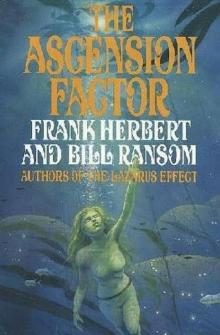 The Ascension Factor
The Ascension Factor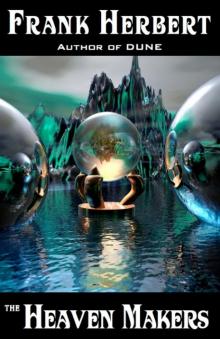 The Heaven Makers
The Heaven Makers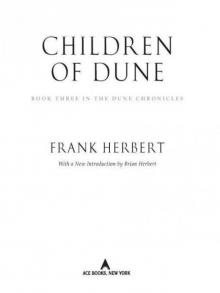 Children of Dune
Children of Dune Old Rambling House
Old Rambling House Dune
Dune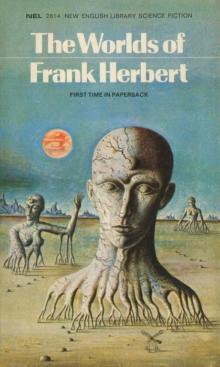 The Worlds of Frank Herbert
The Worlds of Frank Herbert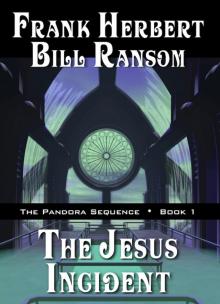 The Jesus Incident
The Jesus Incident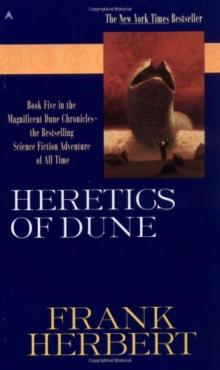 Heretics of Dune
Heretics of Dune Whipping Star
Whipping Star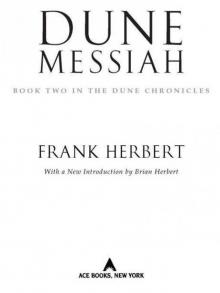 Dune Messiah
Dune Messiah Man of Two Worlds
Man of Two Worlds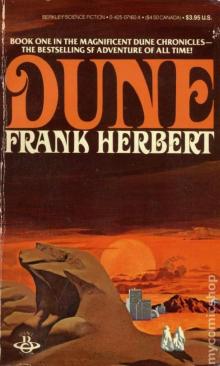 The Book of Frank Herbert
The Book of Frank Herbert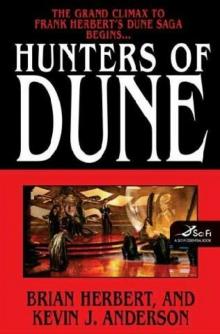 Hunters Of Dune
Hunters Of Dune The Tactful Saboteur
The Tactful Saboteur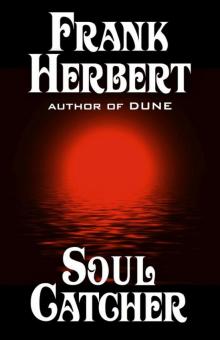 Soul Catcher
Soul Catcher God Emperor of Dune
God Emperor of Dune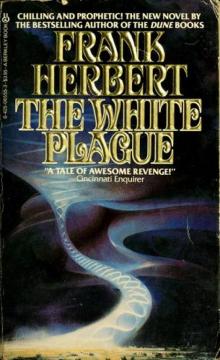 The White Plague
The White Plague The Green Brain
The Green Brain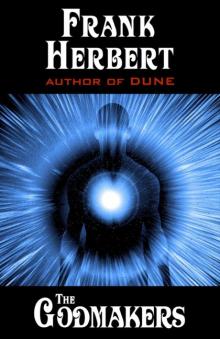 The Godmakers
The Godmakers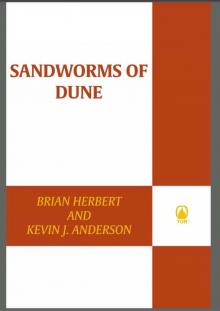 Sandworms of Dune
Sandworms of Dune Destination Void
Destination Void The Dosadi Experiment
The Dosadi Experiment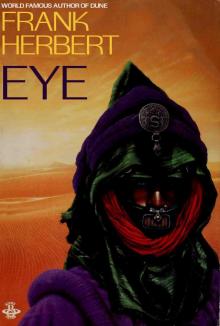 Eye
Eye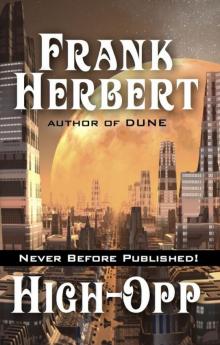 High-Opp
High-Opp The Eyes of Heisenberg
The Eyes of Heisenberg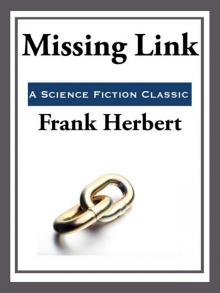 Missing Link
Missing Link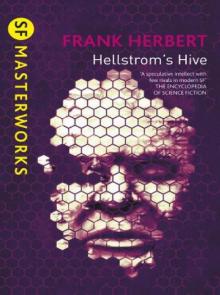 Hellstrom's Hive
Hellstrom's Hive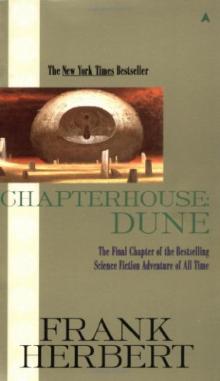 Chapterhouse: Dune
Chapterhouse: Dune The Santaroga Barrier
The Santaroga Barrier The Dragon in the Sea
The Dragon in the Sea Operation Haystack
Operation Haystack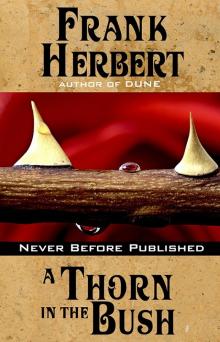 A Thorn in the Bush
A Thorn in the Bush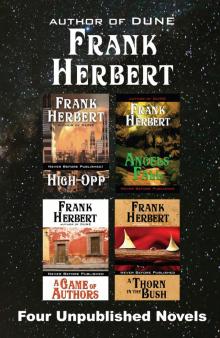 Four Unpublished Novels
Four Unpublished Novels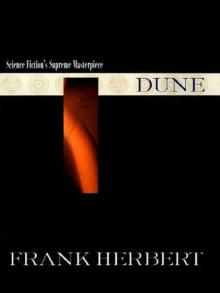 Dune dc-1
Dune dc-1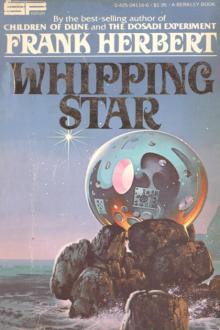 Jorj X. McKie 1 - Whipping Star
Jorj X. McKie 1 - Whipping Star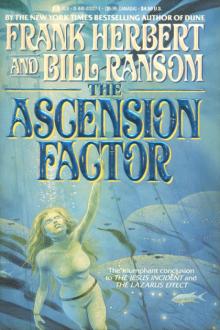 DV 4 - The Ascension Factor
DV 4 - The Ascension Factor Frank Herbert - Dune Book 4 - God Emperor Of Dune
Frank Herbert - Dune Book 4 - God Emperor Of Dune ChapterHouse: Dune dc-6
ChapterHouse: Dune dc-6 The Ascension Factor w-4
The Ascension Factor w-4 A Game of Authors
A Game of Authors Children of Dune dc-3
Children of Dune dc-3 Destination: Void: Prequel to the Pandora Sequence
Destination: Void: Prequel to the Pandora Sequence The Collected Stories of Frank Herbert
The Collected Stories of Frank Herbert Dune Messiah dc-2
Dune Messiah dc-2 Frank Herbert - Dune Book 5 - Heretics of Dune
Frank Herbert - Dune Book 5 - Heretics of Dune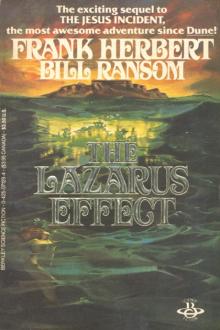 DV 3 - The Lazarus Effect
DV 3 - The Lazarus Effect The Jesus Incident w-2
The Jesus Incident w-2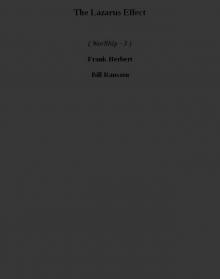 The Lazarus Effect w-3
The Lazarus Effect w-3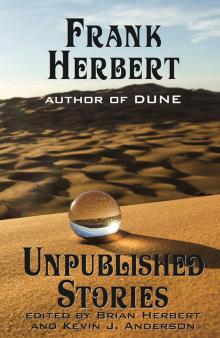 Frank Herbert
Frank Herbert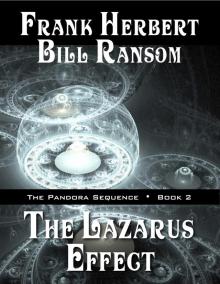 The Ascension Factor: Pandora Sequence
The Ascension Factor: Pandora Sequence Dune (40th Anniversary Edition)
Dune (40th Anniversary Edition) The Dosadi Experiment c-2
The Dosadi Experiment c-2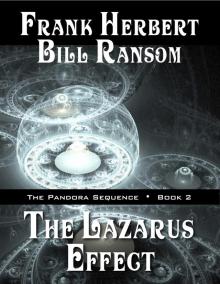 The Lazarus Effect
The Lazarus Effect God Emperor of Dune dc-4
God Emperor of Dune dc-4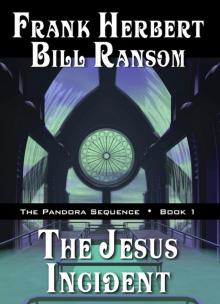 The Pandora Sequence: The Jesus Incident, the Lazarus Effect, the Ascension Factor
The Pandora Sequence: The Jesus Incident, the Lazarus Effect, the Ascension Factor The Green Brain (v4.0)
The Green Brain (v4.0) The Heaven Makers (v4.0)
The Heaven Makers (v4.0) Heretics of Dune dc-5
Heretics of Dune dc-5